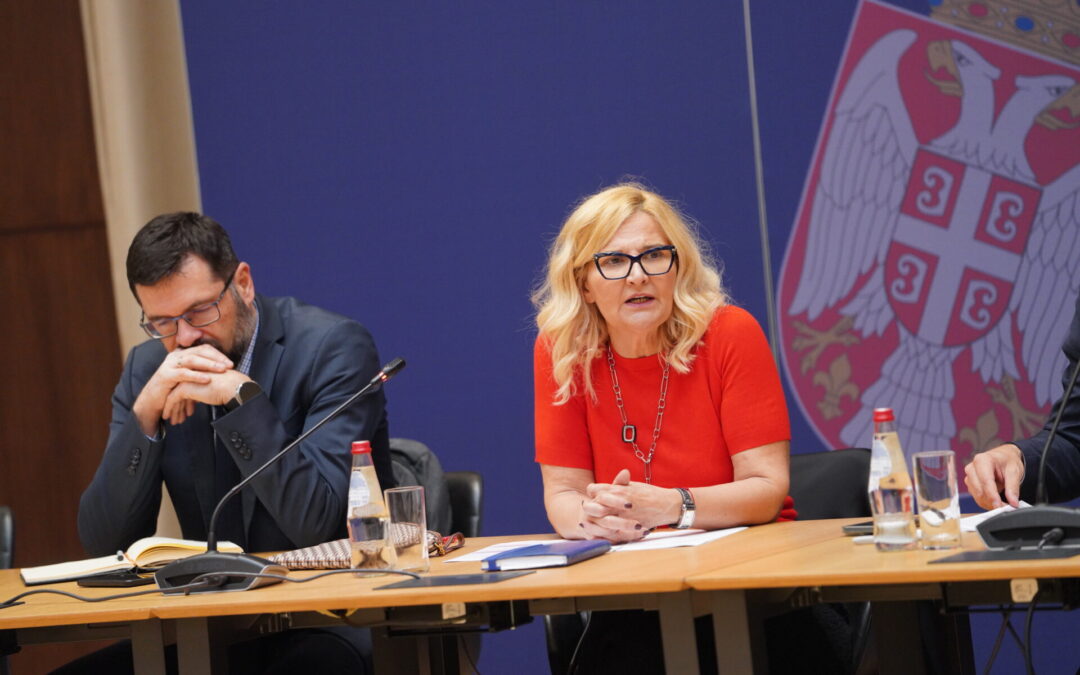BELGRADE – The participants of the conference immediately emphasized at the start that the aim of the project is not only to support the Serbian administration on its path to the EU but also to promote and strengthen collegial cooperation and technical exchange between administrations facing the same problems and limitations.
The Minister for European Integration, Tanja Miščević, said that the experiences of countries from the region have shown that state aid is one of the most difficult elements that candidate countries for membership need to fulfill, so it is left for the very end of the negotiation process. “In our case, the rule of law is the one that has taken precedence, but also the element of closing the negotiation process,” said Miščević. She pointed out that the stabilization and association agreement is significant when it comes to European integration and state aid issues. “By signing the agreement and its entry into force, Serbia, as a country joining the EU, has taken upon itself a significant volume of obligations in aligning the rights existing in Serbia with EU law in the area of state aid,” she said. She added that work has been done on this, which can be seen by the formation of two independent bodies – one dealing with the protection of rights in the area of competition and the other dealing with state aid, so that the state does not regulate these important issues. “According to the new methodology, chapter 8 – protection of competition and state aid is an integral part of the second cluster. In this chapter, Serbia has been fully aware since 2016 of the conditions it must meet to open this chapter,” said Miščević. She stated that Serbia has met some conditions, reminding that the reform agenda, a document that is part of the growth plan in the part relating to state aid, goes a step further. “We are taking on the obligation to align with EU law by the end of 2027, even though we do not know if January 1, 2028, will be the moment of our membership. This is a significant change in the negotiation concept compared to previous enlargement stages,” she said.
The EU Ambassador to Serbia, Emanuel Žiofre, stated that state aid is part of chapter 8 and that it is one of the most important areas in the EU accession process. He noted that significant progress has been made by Serbia in this area, but that some more steps need to be taken to align with EU policy. He mentioned that it is planned for the project, with a budget of eight million euros of non-refundable funds, to last three years. “I am sure that the project’s goal contributes to Serbia, that is, the Serbian commission adopting EU legal achievements, strengthening the commission’s capacity for state aid control,” he said. (May 27)
 go to the original language article
go to the original language article
